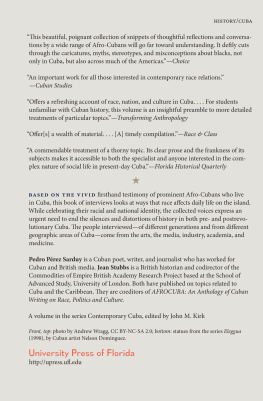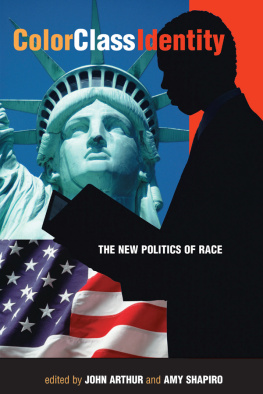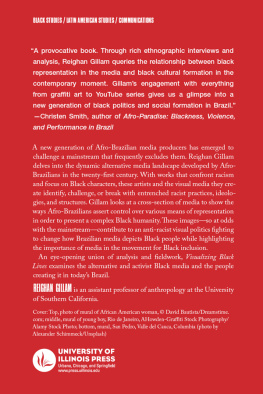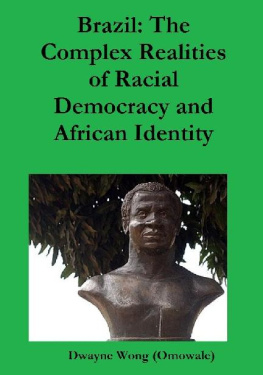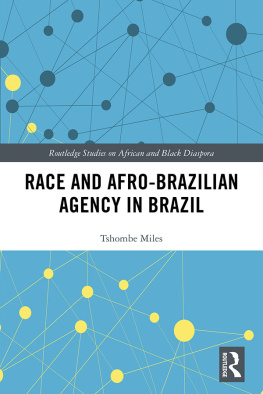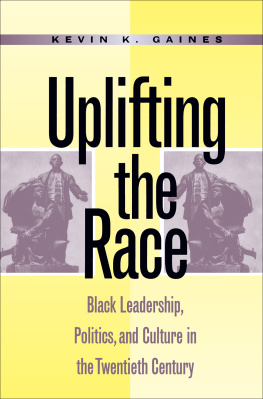Thank you for buying this ebook, published by NYU Press.
Sign up for our e-newsletters to receive information about forthcoming books, special discounts, and more!
Sign Up!
About NYU Press
A publisher of original scholarship since its founding in 1916, New York University Press Produces more than 100 new books each year, with a backlist of 3,000 titles in print. Working across the humanities and social sciences, NYU Press has award-winning lists in sociology, law, cultural and American studies, religion, American history, anthropology, politics, criminology, media and communication, literary studies, and psychology.
THE COLOR OF SOUND
NEW YORK UNIVERSITY PRESS
New York and London
www.nyupress.org
2013 by New York University
All rights reserved
References to Internet websites (URLs) were accurate at the time of writing.
Neither the author nor New York University Press is responsible for URLs
that may have expired or changed since the manuscript was prepared.
LIBRARY OF CONGRESS CATALOGING-IN-PUBLICATION DATA
Burdick, John, 1959
The color of sound : race, religion, and music in Brazil / John Burdick.
p. cm.
Includes bibliographical references and index.
ISBN 978-0-8147-0922-1 (cl : alk. paper)ISBN 978-0-8147-0923-8 (p : alk. paper)ISBN 978-0-8147-0924-5 (e-book)ISBN 978-0-8147-2313-5 (e-book)
1. Gospel musicBrazilHistory and criticism. 2. BlacksBrazilMusic. 3. BlacksBrazilReligion. 4. EvangelicalismBrazil. I. Title.
ML3187.B85 2011
782.2540981dc23 2012027273
New York University Press books are printed on acid-free paper,
and their binding materials are chosen for strength and durability.
We strive to use environmentally responsible suppliers and materials
to the greatest extent possible in publishing our books.
Manufactured in the United States of America
c 10 9 8 7 6 5 4 3 2 1
p 10 9 8 7 6 5 4 3 2 1
PREFACE AND ACKNOWLEDGMENTS
In 1996, I spent a year in Brazil researching the delicate interrelations between religious belief and racial identity among people who identified as Christians. While engaged in that project, I came across a small, budding movement of evangelical Protestants based in So Paulo who were inspired by their theology to struggle against racial injustice and to build a proud black identity. What I found intriguing about this movementits participants were at the time just beginning to identify themselves as the movimento negro evanglico, or MNEwas that it was embedded in a religious context that most black movement organizations had dismissed as deeply hostile to their cause. The main sticking point, from the black movements point of view, was evangelicals attitude toward the Afro-Brazilian religions of candombl and umbanda. I was keenly aware that evangelicals preached against these religions and that some denominations, such as the Igreja Universal do Reino de Deus, had been implicated in direct iconoclastic assaults on Afro-Brazilian temples. While I found such assaults repugnant, the example of the MNE persuaded me that evangelicals rejection, on theological grounds, of Afro-Brazilian mediumship religion was not itself an insurmountable barrier to the development of strong antiracist and problack views.
Yet for years, whenever I spoke in public about the MNE, I found myself met with strong skepticism. Some colleagues implied that I had been hoodwinked, taken in by evangelical leaders who cared little about the struggle against racism and played the race card merely to garner souls and offerings for their churches. While my own experience suggested that the MNE was rather more complex than thatthe depth and durability of the antiracist commitments of people like Hernani da Silva or Rolf da Souza showed that the MNE could not be explained away as simply another missionary stratagemno one was trying to document that complexity. So in 2002 I decided to embark on an effort to discover what made the MNE tick ideologically, that is, how and why its participants were moved to fight collectively through some amalgam of theology and ethnoracial experience.
As I began the study, it struck me that what I needed to do was to find a dimension of the everyday cultural lifeworld of evangelicals which had different effects on identity. My eventual decision to focus on music was not an easy one. For a few years, I avoided looking systematically at music at all. As someone who had spent years thinking about social practices that matter in peoples everyday liveswhat I regarded as tough, sinewy things such as labor, religion, kinship, politicsthe idea that music might be, on its own, an important social force seemed dubious to me. Anyone who has sat through a musical performance is aware of the peculiar evanescence of music, its fleeting, temporary quality, making it seem a rather weak reed on which to hang things as weighty as political consciousness and social identity. Several things, however, ultimately convinced me that music would be a fruitful channel of investigation into the evangelicals social world. First, I realized that while music might be experienced fleetingly by an audience, it was part of the very structure of life for serious musicians and artists. I became mindful, as well, that even if music were secondary in my own life, it was central to the lives of many evangelicals, for whom music was constant company both inside and outside church. And I became aware that even if I was not absolutely certain of the deep importance of music, this uncertainty was in no way shared by my informants. Anytime I began a conversation about music with an evangelical, I was treated to a rush of warm, deep, complex ideas, views, opinions, and claims. If music was not as weighty a factor in the lives of my informants as occupation, food, or employment, they had not received the memo.
If these considerations allayed my concerns, I still had one more hurdle. I am not a trained ethnomusicologist. Though I can read music and have made it my job for the past eight years to read ethnomusicology, I am in general innocent of the technical apparatuses that give ethnomusicology its gravitas. I am also not a practicing musician. It is daunting to pick up volumes written by ethnomusicologists and to learn from their prefaces about all the amateur (and semiprofessional) music-making they have done. I bring to this study not the insights of a ethnomusicologist but those of a social anthropologist who pays close attention to the valued cultural practices of the people I am striving to understand. My hope is that this point of view may allow me to bring freshness to the observation of the daily social practices implicated in musical scenes. Whether I have succeeded I leave to the reader to decide.
Naturally some readers will want to know why I, a white North American, am interested in the politics of blackness at all, let alone black politics in Brazil. To the extent that I can know my biases and motivations in this regard, here they are. I grew up as a Jew in the US Midwest in the 1960s, surrounded by evidence of the consequences of racism. In 1967, I saw tanks roll down Woodward Avenue in Detroit after the city exploded in race riots, and in 1971 I saw buses firebombed in my home city of Pontiac because they were going to be used to desegregate the public schools. My father ran (and lost) for school board that year on a platform of school desegregation, and every spring for many years, our family celebrated Passover by inviting members of local chapters of the NAACP and CORE to talk about the similarities between the struggles of Moses and Martin Luther King Jr. I also read Cleaver and Baldwin and Wright and Malcolm X and Haley and Hansberry and Morrison.


